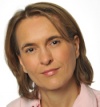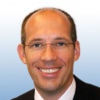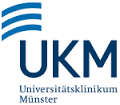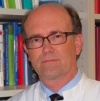The University Hospital Aachen (UKA) is the academic hospital of the RWTH Aachen (Rheinisch-Westfälische Technische Hochschule). The RWTH is one of the largest academic institutions in Germany, with a clear focus on research and development in the field of engineering technology. It belongs to one of the so-called “excellence universities” in Germany and has a long-standing track record of ground-breaking technical research and a strong collaboration with German industry. The UKA is a tertiary care hospital that comprises both teaching and research as well as patient care under one roof. In line with the overall mission of the RWTH, the medical faculty at UKA is the only faculty in Germany that identifies “Technology in Medicine” as one of its major research goals. Thus a tight collaboration between preclinical research and clinical practice fosters the translation of new diagnostic modalities into clinical practice. Thirty-four clinical departments as well as twenty-five research institutes cover the full range of medical expertise.

Christiane Kuhl
Prof. Christiane Kuhl is head of the Department of Diagnostic and Interventional Radiology at the University Hospital Aachen. She is an internationally recognized expert in the field of breast cancer imaging with a special emphasis on the field of breast MRI. She has a long-standing track record in the diagnosis as well as the interventional treatment of cancer, and authored or co-authored well over 1000 papers and conference abstracts, including several highly-cited landmark papers on the use of MR imaging for breast cancer diagnosis. She served as Prinicipal Investigator in several large multi-institutional clinical studies, all aiming at comparing the diagnostic accuracy of different imaging methods for breast cancer diagnosis.
Volkmar Schulz 
Dr. Volkmar Schulz is on the leading edge of research in the development of MR-compatible digital PET detector design. He started his career with Philips Research and joined the academic faculty of RWTH Aachen University (RWTH) in 2013 as a full professor. Since 2015 he has also been a professor of physics at RWTH. He also heads the department of Physics of Molecular Imaging Systems (PMI) which is part of the Institute of Experimental Molecular Imaging (ExMI). His main research interests are silicon photomultiplier based PET detectors, PET-MRI and MPI/ MPI-MRI instrumentation, electromagnetic modality interference, statistically reconstruction techniques, and high resolution system designs for clinical as well as preclinical applications.

The University Hospital Münster (UKM) provides highest level of medical service. A highly competent treatment is guaranteed through the close cooperation of the various clinics allowing treatment strategies according to the current state of the art. UKM is cooperating with several national and international study groups and has outstanding multidisciplinary expertise in the field of pediatric cancer, hematooncology and sarcomas. Furthermore, breast cancer treatment in sporadic and hereditary cases is one main focus in UKM with more than 300 newly diagnosed breast cancer cases. Furthermore, as the chair of the Department of Radiology Prof. Heindel is the central coordinator of the mammography screening program for North Rhine Westfalia, there is a strong interdisciplinary team of radiologists, gynaecologists and pathologists to take care of patients with early neoplastic breast lesions.
Eva Wardelmann
 Prof. Eva Wardelmann is Chair of the
Institute of Pathology at University Hospital Münster, Germany. She also leads
the German Interlaboratory Test for CD117 immunohistochemistry, is a member of
the German Interlaboratory Sequence Testing Group (GIST Group) for KIT/PDGFRA
mutation analysis and representative of the International Academy of Pathology
(IAP), German Division. Prof. Wardelmann
serves as a reference pathologist for the GIST and Sarcoma Registry Münster,
for the German Interdisciplinary Sarcoma Group (GISG) and for the SSG
(Scandinavian Sarcoma Group) and is chair of the Pathology Subcommittee of the
Soft Tissue and Bone Sarcoma Group of the EORTC (European Organization for
Research and Treatment of Cancer). She is has been dedicated to the field of
breast pathology for many years.
Prof. Eva Wardelmann is Chair of the
Institute of Pathology at University Hospital Münster, Germany. She also leads
the German Interlaboratory Test for CD117 immunohistochemistry, is a member of
the German Interlaboratory Sequence Testing Group (GIST Group) for KIT/PDGFRA
mutation analysis and representative of the International Academy of Pathology
(IAP), German Division. Prof. Wardelmann
serves as a reference pathologist for the GIST and Sarcoma Registry Münster,
for the German Interdisciplinary Sarcoma Group (GISG) and for the SSG
(Scandinavian Sarcoma Group) and is chair of the Pathology Subcommittee of the
Soft Tissue and Bone Sarcoma Group of the EORTC (European Organization for
Research and Treatment of Cancer). She is has been dedicated to the field of
breast pathology for many years.
NORAS is an SME based in Höchberg, Germany. It has been internationally successful in the field of MRI for the last 30 years. The company's solid reputation is based on the high-quality products and the customer-oriented service they provide. They are a competent partner for the planning and realization of individual ideas and concepts. The company’s philosophy is product development, production, certification and sales – all from a single partner. Due to many years of experience they can offer MRI coils with the best possible picture quality for various manufacturers of MRI scanners.

Sebastian Aussenhofer is a project manager at NORAS MRI Products working on PET/MRI coils. He studied medical engineering at the University of Applied Science Ulm, Germany. During his study he went on a research semester to Penn State University, USA to work at the Huck Institute for Biomedical Engineering. He later went on to complete his PhD research(2011-2014) at the C.J. Gorter Center for high-field MRI at Leiden University Medical Center. His main research topic was the compatibility testing of a PET-MRI insert for 3 and 7 Tesla. He also gained several years’ experience in industry before joining NORAS MRI Products

With a staff of more than 5,000 employees, the Forschungszentrum Jülich (FZJ) is one of Europe’s largest interdisciplinary research centres. In line with its guiding principles, it works towards comprehensive solutions for the grand challenges facing society in the future in the three fields of health, information technology, and energy and environment, thus laying the foundation for future key technologies. The centre pursues cutting-edge interdisciplinary research on key technologies whose benefits are not restricted to the specific needs of isolated disciplines, but instead open new doors for research as a whole. FZJ is proud of the world-class tools it provides for internal and external researchers to conduct their work. Simulation with supercomputers, research with neutrons, imaging techniques for medicine, nanotechnology tools – these modern instruments allow science to break through to new horizons of knowledge. This infrastructure, valued and used by researchers throughout the world, characterises Jülich as the home of key technologies. Society benefits from the research results obtained by these innovative methods and unique instruments.

Prof. Karl Josef Langen is a nuclear medicine physician with a special interest in the preclinical and clinical testing of new radiopharmaceuticals for nuclear medicine diagnostics using positron emission tomography (PET) and correlation with magnetic resonance imaging (MRI). His main focus is on the assessment of amino acid uptake in brain tumours in correlation with modern developments of functional MRI and the clinical application of correlative MR-PET imaging for diagnosis, therapy planning and therapy control in patients with brain tumours using dedicated hybrid PET/MRI systems.